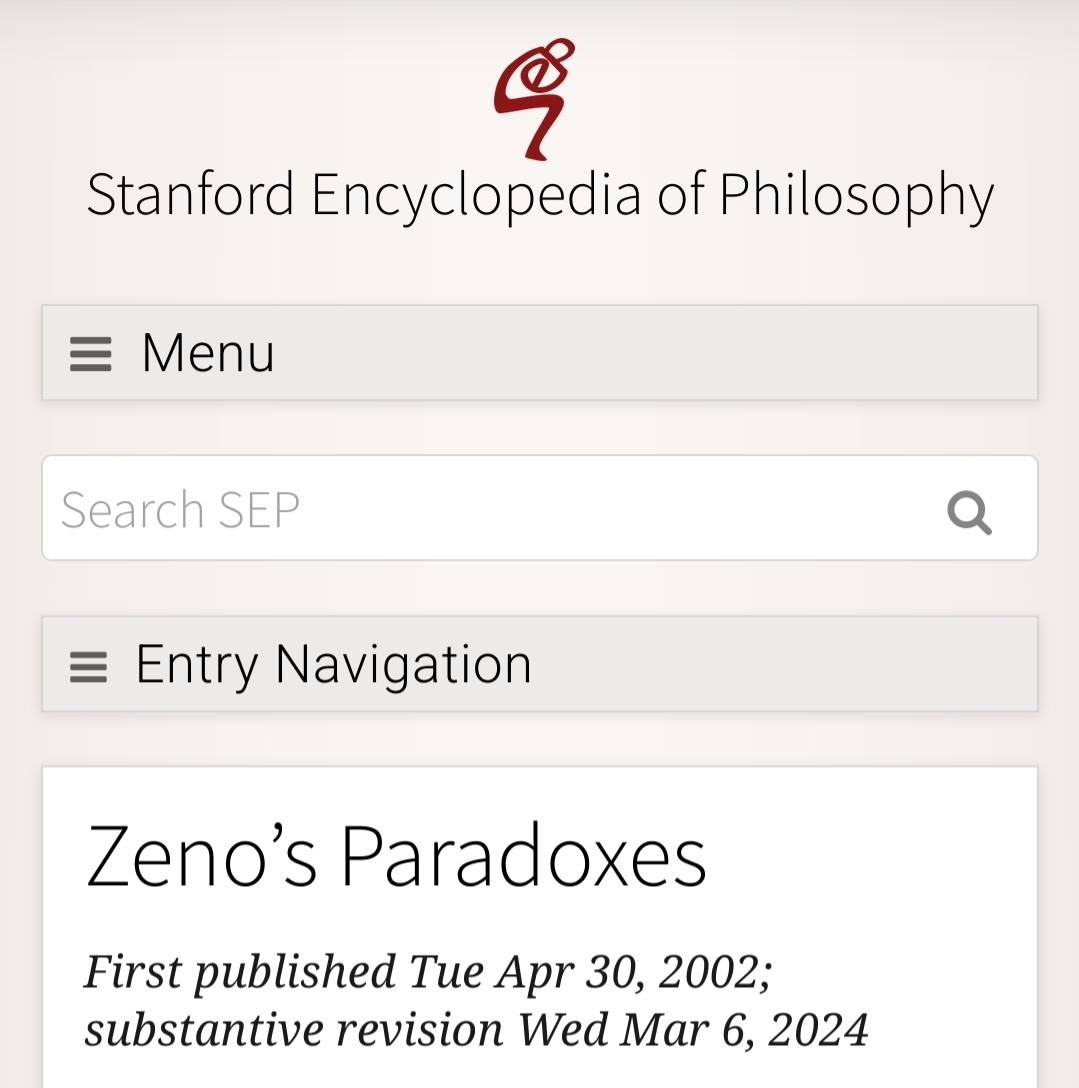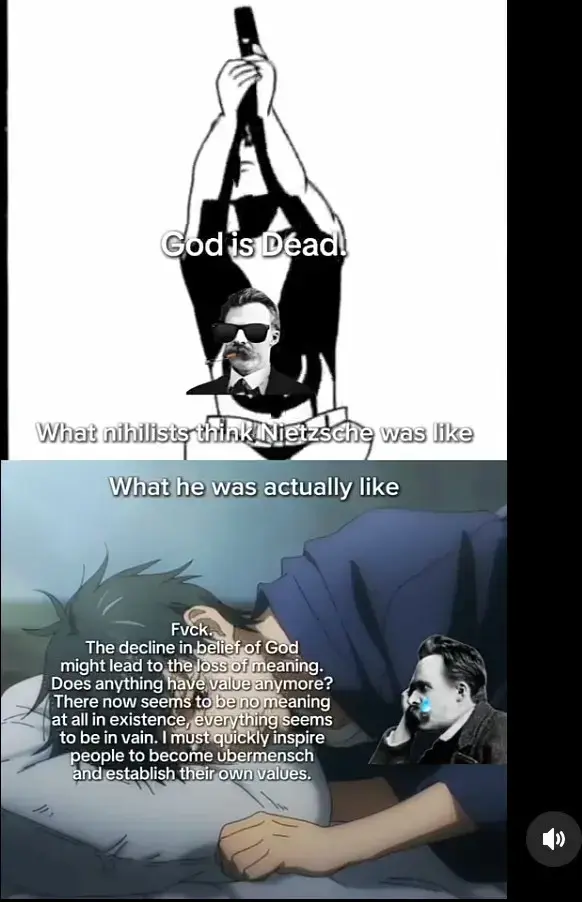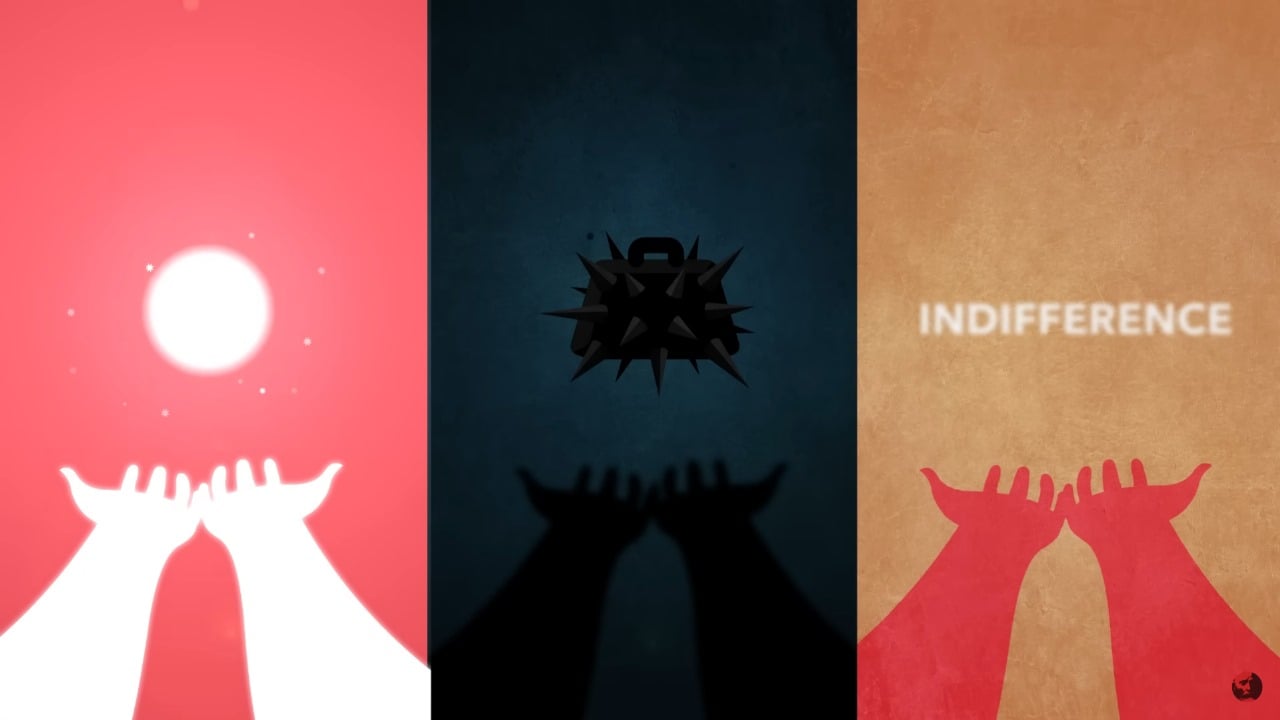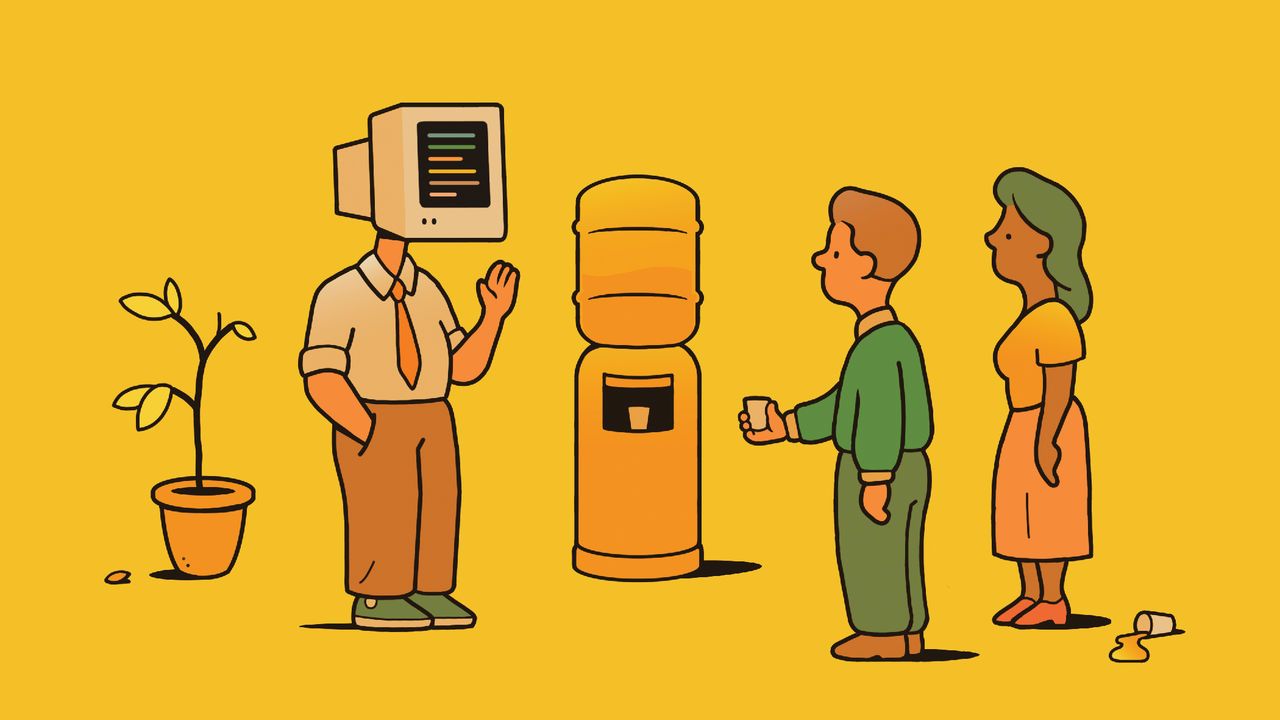Hi all, I wrote this a few days ago for , and had my initial line of argument rejected by the professor, so this is the second attempt. I struggled to write it, because if I don't really believe something it is extremely difficult to write convincingly about it. After a long afternoon of revising though, my feelings are mixed. I welcome any discussion or input, be it philosophical, syntactical, grammatical, alchemical, etc. Without further ado:
Examining Anti-Natalism Through Suffering, Utilitarianism, and Evolutionary Biology
- Introduction
We live in a remarkably peaceful, healthy, happy, and free time in human history. Contrary to common narratives in the media which highlight negativity to drive engagement, humanity as a whole is in something of a renaissance. Violent crime is on the decline (Herre et al.) and deaths from famine have decreased by 88% since the mid-1800s (Hasell et al.). Smallpox, a disease that has killed up to five hundred million people since the 1900s, has been eradicated (Whitfield); and there is a multinational project well underway to create a vaccine for malaria, which is posited to have killed half of all humans who have ever lived (Whitfield). In the last one hundred years, universal suffrage has increased from ten percent to ninety-eight percent (Skaaning et al.). For all human existence until the mid-1800s, life expectancy was around 35 years old. It currently hovers around 74 (Dattani et al.). With all this in mind, it is easy to see how one could make an argument for the continuation of society and, by extension, procreation. The problem with this line of thinking is that it does not take into consideration the law of diminishing returns, nor the implications of a potentially infinite future. In this paper I will argue that a moral duty to not procreate arises from the asymmetry of suffering and applying negative utilitarian principles to society over time.
- Asymmetry of Suffering
The foundation for this idea is the ‘asymmetry of suffering,’ most famously explained by the South African philosopher David Benatar. The principle goes as such:
(1)
the presence of pain is bad, and that
(2)
the presence of pleasure is good.
(3)
the absence of pain is good, even if that good is not enjoyed by anyone, whereas
(4)
the absence of pleasure is not bad unless there is somebody for whom this absence is a deprivation (Benatar, Better Never to Have Been).
It follows that the continuation of society will necessarily cause not only good, but harm. On the other hand, an end to society results in the absence of pleasure, which is not harmful without anyone to experience it, as well as an absence of suffering, which is always good, even without witnesses. This principle can be applied on the individual level as well, where a child born will experience pleasure and suffering, whereas the only tangible effect of not having a child is a lack of suffering.
- Negative Utilitarianism
One possible critique of the argument thus far would be that as society reduces suffering over time, the accumulation of happiness will eventually outweigh any remaining suffering. To ensure that outcome, society must continue, and children must be born. Even if we disregard humans’ tendency towards pessimism, this argument is not sound. Negative Utilitarian moral theory posits that no amount of pleasure can outweigh any amount of pain, because only pain is morally significant (Popper 344)(Kious). On first inspection, many people struggle with this idea. After all, how could many people being happy not offset one person in pain? The moral significance of pain and the impossibility of outweighing it is perfectly encapsulated in the short story, The Ones Who Walk Away From the Omelas, by Ursula Guin. To summarize, the Omelas have a utopian society with limitless freedom, happiness, health, and fulfillment for all. However, the single requirement for their society is that a single child be kept in darkness, filth, and misery forever (Le Guin). When faced with this dilemma, some characters choose to leave, rather than accept the injustice and benefit from the child’s suffering.
The Ones Who Walk Away From the Omelas clearly illustrates that no amount of happiness can outweigh suffering. This is because happiness and suffering are not intrinsically linked, they are not two sides of the same coin. Therefore, when considering this idea, as well as the asymmetry of suffering, it follows that the primary moral duty is to reduce suffering.
- Rebuttal
The philosophical core of this argument is negative utilitarianism, which itself stems from utilitarianism. Both of these moral theories have been challenged for the conclusions reached when they are taken to extremes. For example, the “World Destruction Argument” proposed by Knutsson, states that, if the absence of suffering is good, and reducing suffering is the only moral duty, then the destruction of all sentient life is the most efficient way to achieve this goal (Knutsson).
This is a reasonable rebuttal of Negative Utilitarianism, but it is not without weaknesses. Its primary failure is in not acknowledging one of the only statements generally accepted by philosophy as fact: killing is wrong. If the argument calls for reducing suffering, it is not rational for it to infinitely increase suffering in the instance of its execution. Another potential issue is that the preparation for and execution of a plan to destroy the world would doubtlessly lead to global panic and suffering, which are counter to negative utilitarian principles(Feldman).
Taking that into consideration, Negative Utilitarianism does break down when taken to its limits, but it functions well under the vast majority of circumstances and provides the best theoretical framework for the argument presented here. Someday, a more rigorous theory of consequentialism may emerge that supports the argument made here without the pitfalls of Utilitarianism.
- Evolutionary Propensity for Unhappiness
Regarding society as a whole, it is true that suffering is decreasing in many metrics, but that is more of a platitude than a premise supporting its indefinite continuation. The first, and most major, problem with this idea is that even if the total amount of human suffering is infinitesimal, if society continues through time that amount increases to infinity (Grant). Additionally, humans have an evolutionary propensity towards dissatisfaction with our current state of affairs (Benatar, “The Misanthropic Argument for Anti-Natalism”, 34-35). As Benatar says in Kids? Just Say No:
“When it comes to the satisfaction of desires, things are also stacked against us. Many desires are never satisfied. And even when they are satisfied, it is often after a long period of dissatisfaction. Nor does satisfaction last, for the satisfaction of a desire leads to a new desire – which itself needs to be satisfied sometime in the future. When one can fulfill one’s more basic desires, such as hunger, on a regular basis, higher-level desires arise. There is a treadmill and an escalator of desire”( (Kids? Just Say No.).
This evolutionarily encoded propensity for dissatisfaction is doubtless a beneficial trait from a survival standpoint. Prehistoric humans were motivated to improve their encampment, their tools, and their clothing to protect themselves from the various dangers lurking. Additionally, major depression is hypothesized to have emerged as a way to limit infections and reduce contact with environmental stressors (Kinney and Tanaka). The sum of these biological components is a person who is profoundly unhappy, but still able to procreate. Today, the environmental pressures that led to the emergence of these traits have largely disappeared, so there are legions of people who are dissatisfied with various aspects of their lives and yet are unable to explain why.
- Conclusion
The moral duty to refrain from procreation hinges on several premises. The asymmetry of suffering, which says the absence of pleasure is not necessarily bad, but the absence of pain is neutral. Following that line of reasoning, the principles of Negative Utilitarianism expand on the asymmetry of suffering to provide a philosophical framework whereby the only moral duty is to reduce suffering. A tangential supporting argument is the growing body of evidence for the human evolutionary disposition towards dissatisfaction, as well as major depression as a survival mechanism. What this means is that humans, while successful at reproducing, are hard-wired to be unhappy; if this is the case, a reduction in the population equates to a reduction in unhappiness. These ideas, which are each reasonable arguments for anti-natalism, provide a robust framework in support of anti-natalism when presented as a whole. Procreation is an ethically complex subject, and this paper presents but one possible outcome. There are numerous philosophical frameworks used to support or refute anti-natalism, and many of them directly conflict with each other. It is unlikely that a single argument will ever be accepted as utterly valid and sound. The argument in this paper relies heavily on the principles of negative utilitarianism, which is far from a settled philosophy, but a defense of its principles is outside the scope of this paper.
Moreover, it should be noted that the argument presented here is not the sole path with an antinatalist conclusion. Environmental and feminist ethics are subjects of intense interest, and antinatalist conclusions may arise from principles within them, as well. Seeing similar themes pop up in seemingly disparate areas of philosophy exemplifies the complexity of this issue and the interconnectedness of many challenging questions that face society. Ultimately, allowing the discourse to continue and evolve with society is the only real solution.
Works Cited
Benatar, David. Better Never to Have Been, 12 Oct. 2006, https://doi.org/10.1093/acprof:oso/9780199296422.001.0001.
Benatar, David. “Kids? Just Say No.” Aeon, 19 Jan. 2017, aeon.co/essays/having-children-is-notlife-affirming-its-immoral.
Benatar, David (2015). The misanthropic argument for anti-natalism. Permissible Progeny?, 34– 35. https://doi.org/10.1093/acprof:oso/9780199378111.003.0002
Chudnoff, E. (2007). A guide to philosophical writing. Harvard University.
Dattani, Saloni, et al. “Life Expectancy.” Our World in Data, 28 Dec. 2023, ourworldindata.org/lifeexpectancy#:~:text=In%201900%2C%20the%20average%20life,than%20doubled%20to% 2071%20years.
Fred, Feldman. “Utilitarianism, Victimism, and the Morality of Killing.” Confrontations with the Reaper, 14 Apr. 1994, https://doi.org/10.1093/acprof:oso/9780195089288.003.0011.
Grant, Edward. “Nicole Oresme and the medieval geometry of qualities and motions. A treatise on the uniformity and difformity of intensities known as ‘tractatus de configurationibus qualitatum et motuum.’” Studies in History and Philosophy of Science Part A, vol. 3, no. 2, Aug. 1972, https://doi.org/10.1016/0039-3681(72)90022-2.
Harman, Elizabeth. “Critical Study: David Benatar. Better Never To Have Been: The Harm of Coming into Existence.” Noûs, vol. 43, no. 4, 19 Nov. 2009, pp. 776–785, https://doi.org/10.1111/j.1468-0068.2009.00727.x.
Hasell, J., & Roser, M. (2023, December 28). Famines. Our World in Data. https://ourworldindata.org/famines
Herre, B., Spooner, F., & Roser, M. (2023, December 28). Homicides. Our World in Data. https://ourworldindata.org/homicides
Kinney, Dennis K., and Midori Tanaka. “An evolutionary hypothesis of depression and its symptoms, adaptive value, and risk factors.” Journal of Nervous & Mental Disease, vol. 197, no. 8, Aug. 2009, https://doi.org/10.1097/nmd.0b013e3181b05fa8.
Kious, Brent M. “Three Kinds of Suffering and Their Relative Moral Significance.” Bioethics, vol. 36, no. 6, 12 Mar. 2022, https://doi.org/10.1111/bioe.13021.
Knutsson, Simon. “The World Destruction Argument.” Inquiry, vol. 64, no. 10, 29 Aug. 2019, pp. 1004–1023, https://doi.org/10.1080/0020174x.2019.1658631.
Le Guin, Ursula K. The Ones Who Walk Away From the Omelas. Creative Education, 1993.
Metz, T. (2022). Are lives worth creating? Contemporary Anti-Natalism. https://doi.org/10.4324/9781003324959-3
Popper, Karl. “Prediction and Prophecy in the Social Sciences.” Conjectures and Refutations, Basic Books, New York, New York, 1962, pp. 344–344.
Shiffrin, S. V. (2017). Wrongful life, procreative responsibility, and the significance of harm. Intergenerational Justice, 151–182. https://doi.org/10.4324/9781315252100-9
Skaaning, Svend-Erik, et al. “Lexical Index of Electoral Democracy (LIED) dataset v6.0.” Svend-Erik Skaaning Dataverse, Apr. 2023, https://doi.org/https://doi.org/10.7910/DVN/WPKNIT.
Whitfield, J. (2002, October 3). Portrait of a serial killer. Nature News. https://www.nature.com/articles/news021001-6






